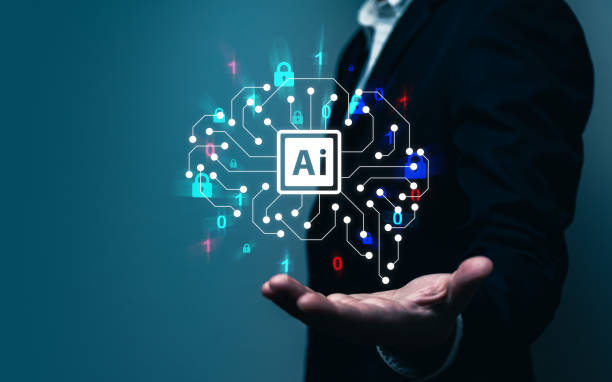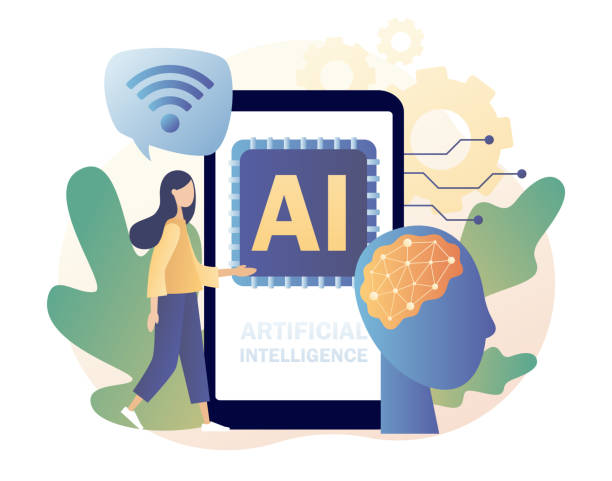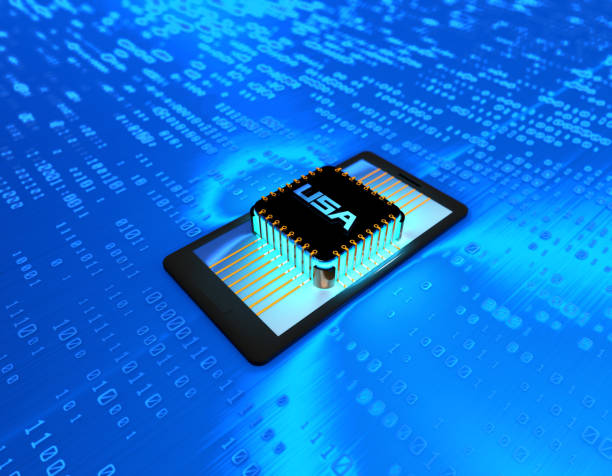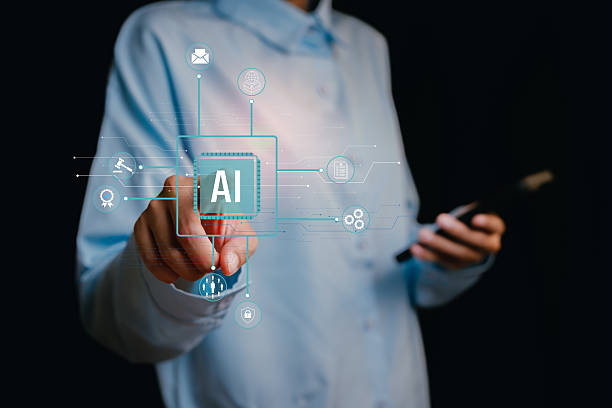What is an Artificial Intelligence Robot and How Does it Work?
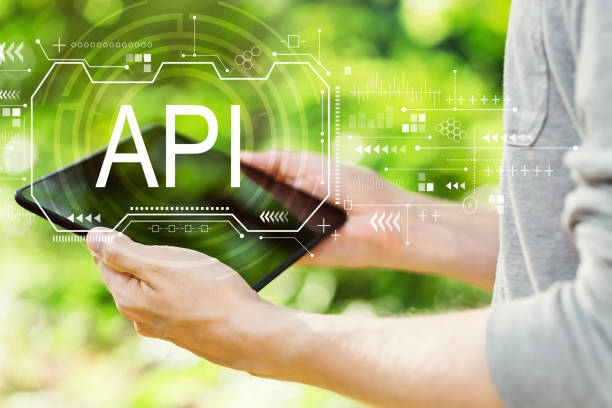
#ArtificialIntelligenceRobot refers to a combination of artificial intelligence and robotics. These robots are designed to be capable of performing complex tasks, learning from experiences, and making independent decisions. In fact, they try to mimic intelligent human behaviors. The artificial intelligence robot uses machine learning algorithms and neural networks to process data and make decisions. These robots can be used in various fields, including industry, medicine, customer service, and even household chores.
The basis of how an artificial intelligence robot works is receiving data from the surrounding environment, analyzing this data, and then performing appropriate operations based on the analyzed data. This process is carried out by sensors, processors, and actuators. Sensors collect information, processors analyze this information, and actuators execute the processed commands. For example, an artificial intelligence robot used in a factory to inspect the quality of products can use cameras as sensors to collect images of the products, then analyze these images using computer vision algorithms to identify defective products, and finally use actuators to separate these products from the production line. The use of artificial intelligence robots in various industries has many advantages, including increased accuracy, reduced errors, increased speed, and reduced costs.
Are you tired of your online store not generating as much revenue as its potential? Rasaweb, specializing in professional online store design, solves this problem forever!
✅ Increased sales rates and revenue
✅ High loading speed and an exceptional user experience
⚡ Get a free consultation on online store design
Types of Artificial Intelligence Robots Based on Application
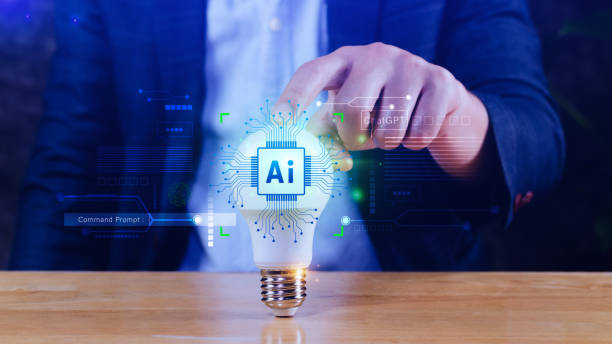
Artificial intelligence robots are divided into various categories based on different applications. One of these categories is industrial robots, which are used in production lines and factories. These robots are usually designed to perform repetitive and heavy tasks and can work continuously without fatigue. Another category of artificial intelligence robots is service robots, which provide services in various environments such as hospitals, hotels, and stores. These robots can perform tasks such as transporting items, cleaning, and answering customer questions.
Also, artificial intelligence robots have extensive applications in the medical field. These robots can help doctors in complex surgeries, diagnosing diseases, and providing remote medical care. In addition, artificial intelligence robots are also used in the field of education. These robots can act as private tutors for students and help them learn various topics. One of the newest applications of artificial intelligence robots is their use in self-driving cars. These cars, using artificial intelligence algorithms and various sensors, are capable of driving without human intervention. This technology can significantly reduce traffic accidents and increase road safety. In general, artificial intelligence robots are creating fundamental transformations in various industries and are expected to play a more important role in our lives in the future.
Advantages and Disadvantages of Using Artificial Intelligence Robots
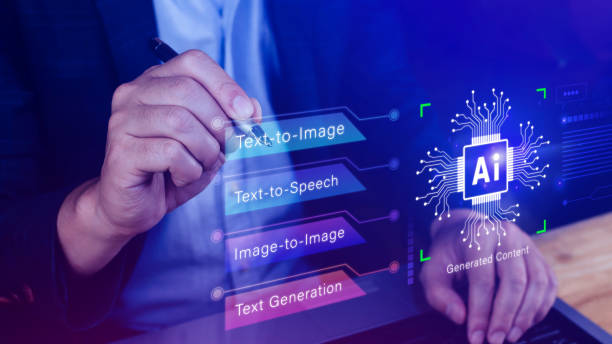
The use of artificial intelligence robots has many advantages, including increased productivity, reduced costs, and improved quality. These robots can work continuously without fatigue and perform complex tasks with high accuracy. In addition, artificial intelligence robots can be used in dangerous and inaccessible environments for humans. For example, these robots can be used in mines, polluted areas, and outer spaces to carry out specific missions. However, the use of artificial intelligence robots also has disadvantages. One of the most important disadvantages is the high cost of designing, building, and maintaining these robots. Also, widespread use of artificial intelligence robots can lead to job losses and increased unemployment rates.
In addition, there are concerns about security and privacy. Artificial intelligence robots are capable of collecting and processing large amounts of data, which can lead to misuse of this data and violation of individuals’ privacy. There is also concern that artificial intelligence robots will be able to make autonomous decisions in the future and that their control will be lost from human hands. To address these challenges, it is necessary to develop appropriate laws and regulations for the use of artificial intelligence robots and ensure that this technology is used responsibly and ethically. Given the high potential of this technology, it is necessary to seriously consider its advantages and disadvantages and make appropriate plans for its use. The following table provides a comparison between the advantages and disadvantages of using artificial intelligence robots:
| Advantages | Disadvantages |
|---|---|
| Increased Productivity | High Cost |
| Reduced Costs | Job Losses |
| Improved Quality | Security and Privacy Concerns |
| Performing Dangerous Tasks | Potential Loss of Control |
Challenges in Developing and Implementing Artificial Intelligence Robots
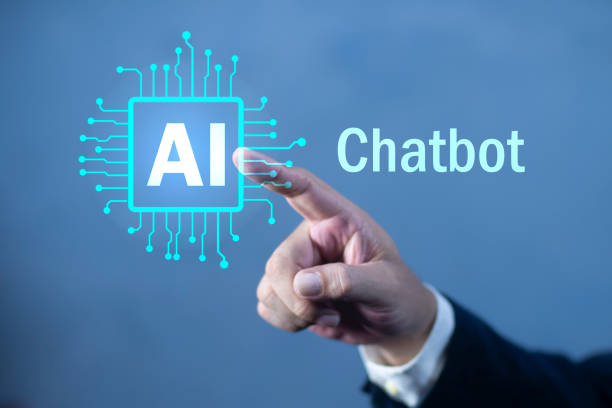
The development and implementation of artificial intelligence robots face numerous challenges. One of the most important challenges is the lack of suitable training data. Machine learning algorithms need a large amount of data to train and improve their performance. In many cases, collecting suitable and high-quality data is difficult and expensive. In addition, there are challenges in the design and construction of robot hardware. Artificial intelligence robots require advanced hardware capable of processing large amounts of data and performing complex operations. There are also challenges in integrating robot software and hardware. The robot software must be fully compatible with its hardware so that the robot can function correctly.
In addition to technical challenges, there are ethical and social challenges in the development and implementation of artificial intelligence robots. One of the most important ethical challenges is the accountability of robots in the event of an error or accident. If an artificial intelligence robot causes damage or injury, who will be responsible? The robot’s manufacturer, the robot’s user, or the robot itself? These questions still do not have definite answers and need further discussion and examination. There are also challenges in the area of discrimination and inequality. Artificial intelligence algorithms may act discriminatory based on their training data and treat different people unfairly. For example, a facial recognition algorithm may be less accurate in recognizing the faces of people with dark skin. To address these challenges, it is necessary to develop and implement artificial intelligence robots with a responsible and ethical approach and ensure that this technology is used for the benefit of all members of society.
Do you know that a weak corporate website is costing you many opportunities every day? Solve this problem forever with professional corporate website design by Rasaweb!
✅ Creating a powerful and reliable image of your brand
✅ Attracting targeted new customers and increasing sales
⚡ [Get a Free Website Design Consultation]
The Future of Artificial Intelligence Robots and Their Impact on Human Life
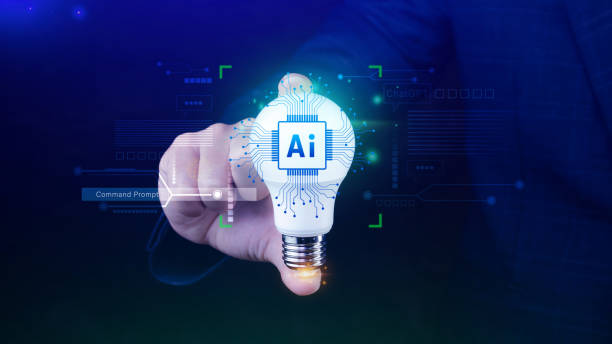
The future of artificial intelligence robots looks very bright and promising. With the ever-increasing advancement of technology, artificial intelligence robots are expected to play a much more important role in our lives in the future. These robots can help humans in various fields including health and medicine, education, transportation, industry, and services. For example, in the field of health and medicine, artificial intelligence robots can help doctors in early diagnosis of diseases, providing personalized medical care, and performing complex surgeries. In the field of education, these robots can act as private tutors for students and help them learn various topics. In the field of transportation, self-driving cars can significantly reduce traffic accidents and increase road safety.
However, the development and widespread use of artificial intelligence robots can also bring challenges. One of the most important challenges is the potential for job losses and increased unemployment rates. Artificial intelligence robots are capable of performing many of the tasks that are currently performed by humans. This can lead to job losses in various industries. To address this challenge, governments and organizations need to have appropriate plans for training and retraining the workforce and ensure that people have the skills necessary to work in the new world. In addition, there are concerns about security and privacy. Artificial intelligence robots are capable of collecting and processing large amounts of data, which can lead to misuse of this data and violation of individuals’ privacy. To address these challenges, it is necessary to develop appropriate laws and regulations for the use of artificial intelligence robots and ensure that this technology is used responsibly and ethically.
The Most Important Applications of Artificial Intelligence Robots in Industry
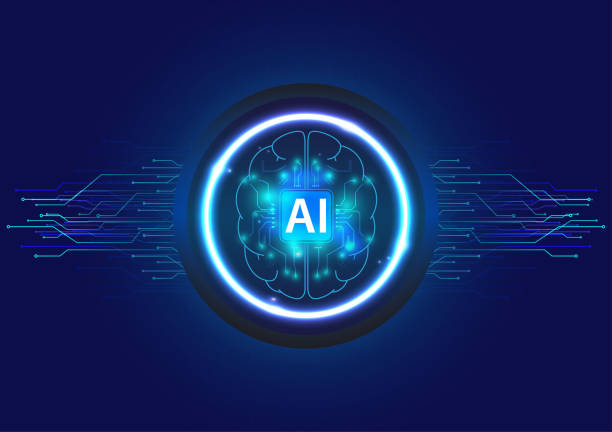
In industry, artificial intelligence robots have very diverse and extensive applications. These robots can be used in production lines, warehousing, quality control, and many other industrial processes. One of the most important applications of artificial intelligence robots in industry is the automation of production processes. These robots can perform repetitive and heavy tasks continuously without fatigue and increase productivity and reduce costs. In addition, artificial intelligence robots can also be used in quality control of products. These robots can use machine vision algorithms to accurately inspect products and identify defective products.
In warehousing, artificial intelligence robots can also play an important role. These robots can automatically perform tasks such as picking and placing goods, sorting and packaging goods, and reduce warehousing time and costs. In addition, artificial intelligence robots can also be used in the maintenance and repair of industrial equipment. These robots can continuously monitor the condition of equipment using various sensors and identify potential problems before they occur. This can prevent equipment failure and production line shutdown and reduce maintenance and repair costs. The following table shows some of the most important applications of artificial intelligence robots in industry:
| Application | Description |
|---|---|
| Automation of Production Processes | Performing repetitive and heavy tasks continuously without fatigue |
| Quality Control | Accurately inspecting products and identifying defective products |
| Warehousing | Picking and placing goods, sorting and packaging goods |
| Maintenance and Repairs | Monitoring equipment status and identifying potential problems |
Case Study of Artificial Intelligence Robots in Medicine
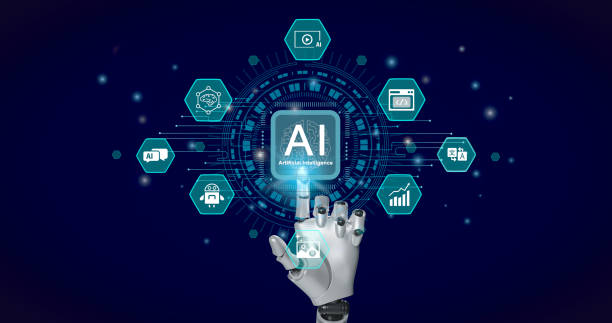
In the field of medicine, artificial intelligence robots have a great potential to improve the quality of health care. These robots can help doctors in diagnosing diseases, surgery, rehabilitation, and providing remote medical care. One of the most important applications of artificial intelligence robots in medicine is the early diagnosis of diseases. These robots can use machine learning algorithms to analyze medical images such as MRI and CT scans and identify signs of diseases in their early stages. This can help doctors diagnose diseases in their early stages and provide more effective treatments.
In addition, artificial intelligence robots can also be used in surgery. These robots can perform complex surgeries with high accuracy and minimal invasiveness, reducing patient pain and bleeding. Also, artificial intelligence robots can play an important role in the rehabilitation of patients. These robots can help patients perform rehabilitation exercises and continuously monitor their progress. Another important application of artificial intelligence robots in medicine is providing remote medical care. These robots can help doctors examine patients in remote and inaccessible areas and provide the necessary medical care. This can be especially helpful for people who live in underserved areas. In general, artificial intelligence robots are creating fundamental transformations in the field of medicine and are expected to play a more important role in providing health care in the future.
Impact of Artificial Intelligence Robots on the Labor Market
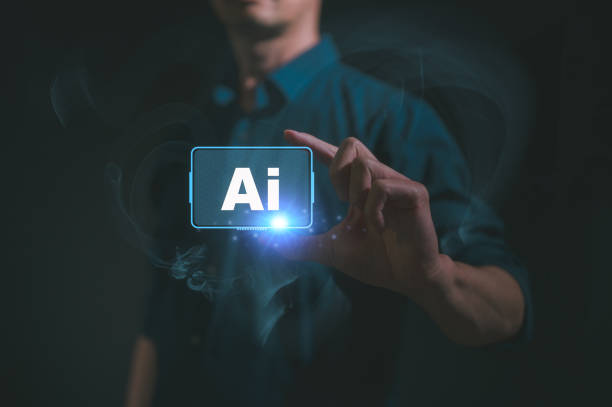
The development and widespread use of artificial intelligence robots will have significant impacts on the labor market. One of the most important impacts is the potential for job losses and increased unemployment rates. Artificial intelligence robots are capable of performing many of the tasks that are currently performed by humans. This can lead to job losses in various industries. For example, artificial intelligence robots can work in production lines, call centers, and administrative offices instead of humans.
However, the development of artificial intelligence robots can also create new job opportunities. For example, the need for specialists to design, build, maintain, and repair artificial intelligence robots will increase. Also, new job opportunities will be created in areas related to artificial intelligence such as data mining, machine learning, and machine vision. In addition, artificial intelligence robots can help increase productivity and economic growth, which can lead to the creation of new jobs in various industries. To address the challenges caused by the impact of artificial intelligence robots on the labor market, governments and organizations need to have appropriate plans for training and retraining the workforce and ensure that people have the skills necessary to work in the new world. Also, it is necessary to consider appropriate support policies for people who lose their jobs due to automation. Given the high potential of artificial intelligence robots to create positive changes in society, it is necessary to seriously consider their impact on the labor market and make appropriate plans to manage these impacts.
Do visitors leave your online store before buying? Don’t worry anymore! With Rasaweb’s professional online store design services, solve the problem of not converting visitors into customers forever!
✅ Significant increase in conversion rates and sales
✅ Unique and attractive user experience
⚡ Contact us now for a free consultation!
A Look at Ethics in Artificial Intelligence Robots

With the ever-increasing advancement of artificial intelligence technology and the widespread use of artificial intelligence robots, ethical issues related to this technology are becoming more important. One of the most important ethical issues is the accountability of robots in the event of an error or accident. If an artificial intelligence robot causes damage or injury, who will be responsible? The robot’s manufacturer, the robot’s user, or the robot itself? These questions still do not have definite answers and need further discussion and examination. In addition, there are challenges in the area of discrimination and inequality. Artificial intelligence algorithms may act discriminatory based on their training data and treat different people unfairly.
For example, a facial recognition algorithm may be less accurate in recognizing the faces of people with dark skin. Another important ethical issue is protecting people’s privacy. Artificial intelligence robots are capable of collecting and processing large amounts of data, which can lead to misuse of this data and violation of individuals’ privacy. For example, artificial intelligence robots that are used in homes can collect personal information from individuals and share it with advertising companies. To address these challenges, it is necessary to develop and implement artificial intelligence robots with a responsible and ethical approach and ensure that this technology is used for the benefit of all members of society. Also, it is necessary to develop appropriate laws and regulations for the use of artificial intelligence robots and ensure that this technology is used responsibly and ethically. Artificial intelligence robots can help society, but ethical issues related to them must also be considered.
How to Choose an Artificial Intelligence Robot?
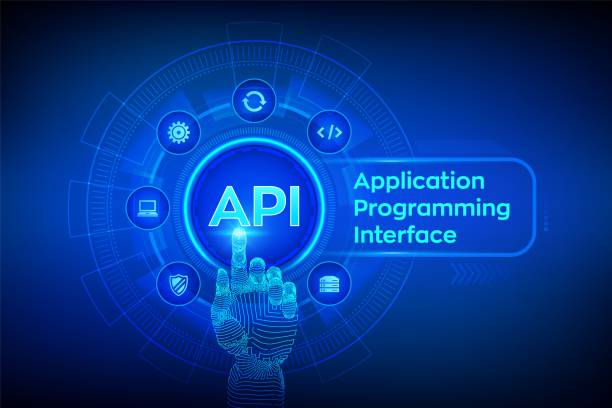
Choosing the right artificial intelligence robot depends heavily on your needs and goals. First of all, you need to accurately specify what you expect from the robot and what tasks you want it to perform. For example, if you are looking for a robot to automate production processes, you need to choose a robot that is capable of performing repetitive and heavy tasks with high accuracy. If you are looking for a robot to provide services to customers, you need to choose a robot that is capable of interacting with humans and answering their questions.
In addition, you should also pay attention to the technical features of the robot. Processing speed, accuracy, memory capacity, and type of sensors are among the important technical features that should be considered. Also, you should pay attention to the purchase, maintenance, and repair costs of the robot. Artificial intelligence robots are usually expensive and require periodic maintenance and repairs. Before buying a robot, you should accurately calculate the costs associated with it. Another important factor in choosing an artificial intelligence robot is the robot’s adaptability to the work environment. The robot must be able to work in different conditions and adapt to environmental changes. For example, if the robot will work in a dusty environment, you should choose a robot that has dust-resistant sensors. Finally, you should also pay attention to the technical support and after-sales services of the robot. The company that manufactures the robot should be able to provide adequate technical support and after-sales services so that you can easily fix it if a problem occurs. Choosing the right artificial intelligence robot requires careful consideration of the needs, goals, and technical features of the robot. By carefully considering these factors, you can choose a robot that will help you in the best possible way.
FAQ
| Question | Answer |
|---|---|
| What is an artificial intelligence robot? | It is a robot that uses artificial intelligence capabilities to understand the environment, reason, learn, and make decisions to perform complex tasks independently. |
| What is the main difference between a regular robot and an artificial intelligence robot? | Artificial intelligence robots can learn and adapt to their environment, while regular robots usually operate based on fixed and pre-determined plans. |
| In what areas are artificial intelligence robots used? | In areas such as industry (production lines), medicine (robotic surgeries), services (customer support, smart vacuum cleaners), exploration (space and underwater), and entertainment. |
| How do artificial intelligence robots learn? | They acquire new skills through machine learning algorithms (Machine Learning) and deep learning (Deep Learning), by analyzing large data and identifying patterns. |
| Can artificial intelligence robots have feelings? | Currently, no. They can identify or simulate emotions, but they do not have a real experience of emotions like humans. |
| What are the most important advantages of using artificial intelligence robots? | Increased productivity, reduced human error, performing dangerous or repetitive tasks, and providing innovative and efficient services. |
| What challenges exist in developing artificial intelligence robots? | The need for abundant and high-quality data, the complexity of algorithms, ethical issues, cybersecurity, and the high cost of research and development. |
| Are artificial intelligence robots dangerous to humans? | No, if safe design principles and ethical regulations are followed. Concerns are more about social and economic impacts such as changes in the labor market. |
| What is an example of an artificial intelligence robot in everyday life? | Smart vacuum cleaner robots (such as Roomba) that automatically map and clean the house, or intelligent voice assistants (such as Siri and Alexa). |
| How is the future of artificial intelligence robots predicted? | They are expected to become smarter, more autonomous, and capable of more complex interaction with humans, and play a more prominent role in industry, medicine, transportation, and everyday life. |
And other services of Rasa Web Advertising Agency in the field of advertising
Intelligent Custom Software: An effective tool to increase sales by customizing the user experience.
Intelligent Direct Marketing: An effective tool for managing campaigns with dedicated programming.
Intelligent UI/UX: Professional optimization for user interaction using user experience customization.
Intelligent SEO: A dedicated service for growing campaign management based on the use of real data.
Intelligent Marketplace: An effective tool to attract customers with marketing automation.
And more than hundreds of other services in the field of internet advertising, advertising consulting, and organizational solutions
Internet Advertising | Advertising Strategy | Advertorial
Resources
Types of smart robots in the future and application
,Let’s know the applications of smart robots
,How do smart robots work in the industry
,What is artificial intelligence (AI)?
? With Rasaweb Afrin, your business flies in the digital world! We offer innovative and result-oriented solutions for your growth with comprehensive services including responsive website design, SEO, and content marketing.
📍 Tehran, Mirdamad Street, next to Central Bank, South Kazerun Alley, Ramin Alley No. 6

